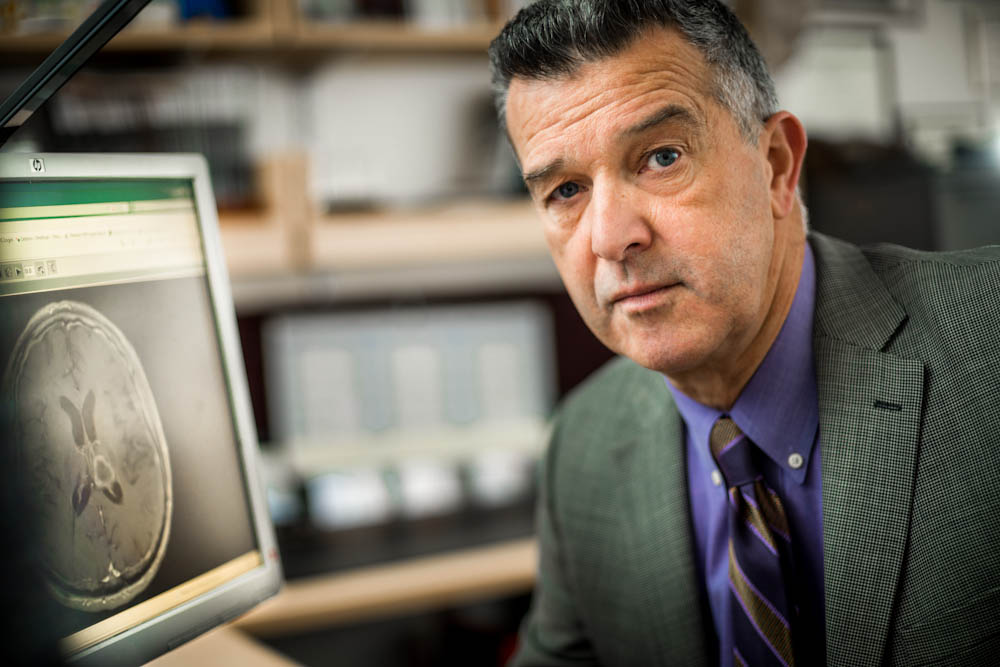Researchers in Dana-Farber’s Center for Neuro-Oncology are now launching attacks on glioblastomas from a new angle – by turning the patient’s immune system against the cancer cells. Where targeted chemotherapy uses drugs to disable proteins that cancer cells need to grow, immunotherapy drugs stimulate the patient’s immune system to recognize and kill cancer cells.

Traditional drugs and even targeted chemotherapy agents have had little success in treating glioblastoma – the deadliest type of brain tumor.
“Immunotherapy represents a great hope for patients currently facing this disease,” says David Reardon, MD, clinical director of the Center. “We’re anxious to move this approach forward for brain cancer patients.”
Last November, Reardon reported that a new cancer vaccine, rindopepimut, showed promise in a clinical trial of patients whose glioblastoma cells contain a particular gene mutation.
Cancer vaccines are a form of immunotherapy that have been studied and tested for many years with some success. They’re often made from an individual patient’s tumor cells, or parts of them, which are processed in the laboratory and returned to the patient to stimulate a strong immune response.
Rindopepimut, given along with the anti-angiogenic drug Avastin, significantly improved the survival of patients whose tumors carried the mutation known as EGFRvIII, which is found in about one-third of glioblastoma tumors.
“This is the first randomized clinical trial of immunotherapy to show a survival benefit in glioblastoma,” Reardon says. “It is a very nice proof of concept.”
Reardon is also heading a new clinical study of NeoVax, a “personalized neoantigen cancer vaccine,” which is already in testing for melanoma at Dana-Farber.
Read more:
New Surgery Technique Expands Treatment Options for Brain Tumor Patients
New Year Brings New Hope for Young Violinist with Brain Tumor
The NeoVax vaccine is made with “tumor-specific antigens” that correspond to the unique set of such antigens on the surface of an individual patient’s tumor cells. It’s been shown that these highly specific antigens can stimulate a potent, focused immune response.
“We think NeoVax should be effective even if the tumor tries to change to become treatment-resistant,” Reardon says.
The new pilot study, done in collaboration with Dana-Farber scientists Catherine Wu, MD, and Edward Fritsch, PhD, is testing the feasibility and safety of NeoVax in 15 patients.
If the vaccine proves effective, it will be combined in further trials with immune checkpoint blockers that target proteins PD-1 and PD-L1 to remove the brakes that cancer uses to suppress an immune response. New drugs that attack these checkpoints have had dramatic and long-lasting results in some patients with advanced, metastatic melanoma.
In a parallel project currently being tested in animal models, Reardon, in collaboration with David Mooney, PhD of the Wyss Institute, is optimizing an implantable “matrix” of biomaterials designed to reprogram immune cells in the patient’s body to generate a potent immune attack on glioblastoma tumors.
